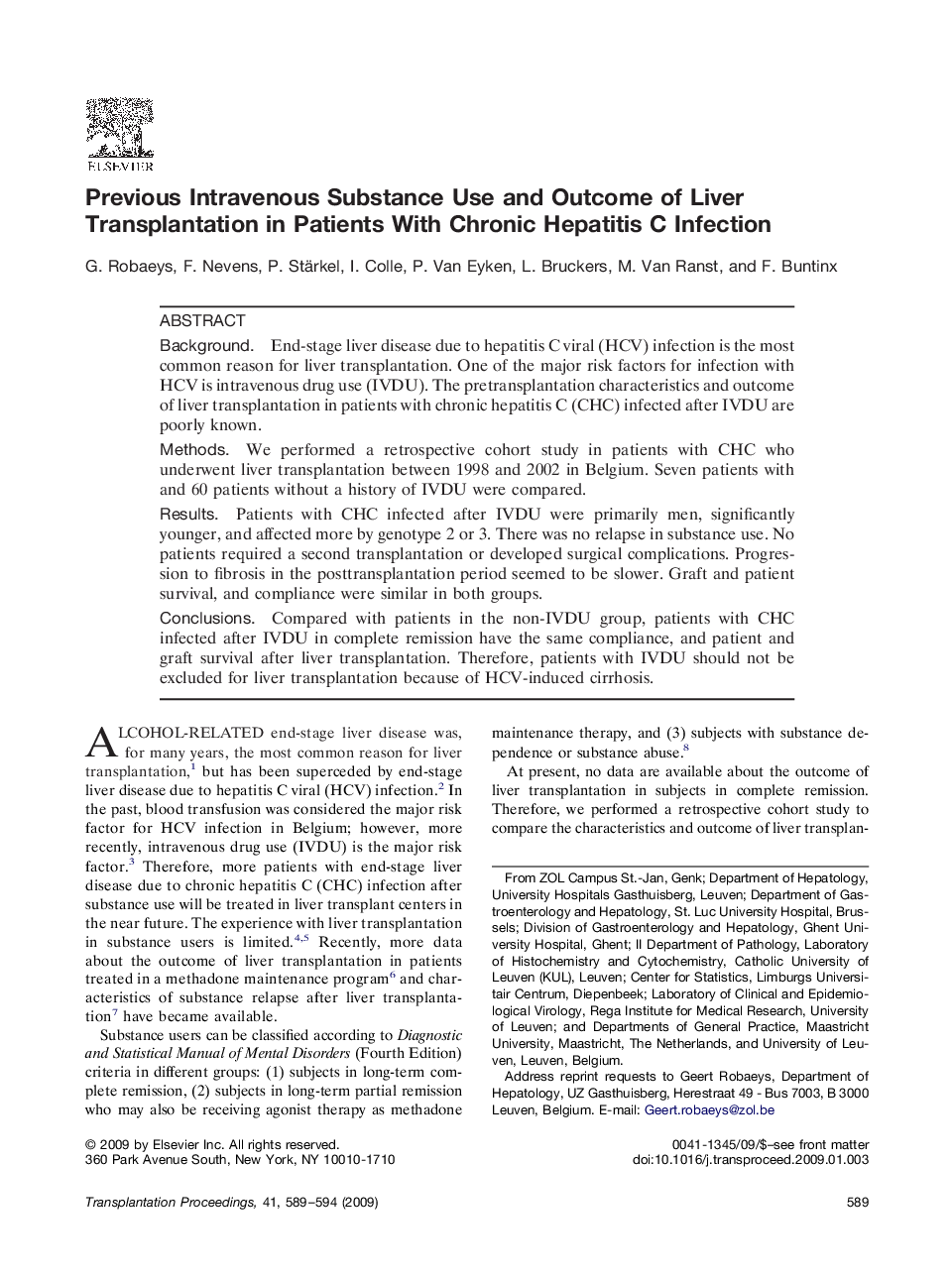| Article ID | Journal | Published Year | Pages | File Type |
|---|---|---|---|---|
| 4259526 | Transplantation Proceedings | 2009 | 6 Pages |
BackgroundEnd-stage liver disease due to hepatitis C viral (HCV) infection is the most common reason for liver transplantation. One of the major risk factors for infection with HCV is intravenous drug use (IVDU). The pretransplantation characteristics and outcome of liver transplantation in patients with chronic hepatitis C (CHC) infected after IVDU are poorly known.MethodsWe performed a retrospective cohort study in patients with CHC who underwent liver transplantation between 1998 and 2002 in Belgium. Seven patients with and 60 patients without a history of IVDU were compared.ResultsPatients with CHC infected after IVDU were primarily men, significantly younger, and affected more by genotype 2 or 3. There was no relapse in substance use. No patients required a second transplantation or developed surgical complications. Progression to fibrosis in the posttransplantation period seemed to be slower. Graft and patient survival, and compliance were similar in both groups.ConclusionsCompared with patients in the non-IVDU group, patients with CHC infected after IVDU in complete remission have the same compliance, and patient and graft survival after liver transplantation. Therefore, patients with IVDU should not be excluded for liver transplantation because of HCV-induced cirrhosis.
